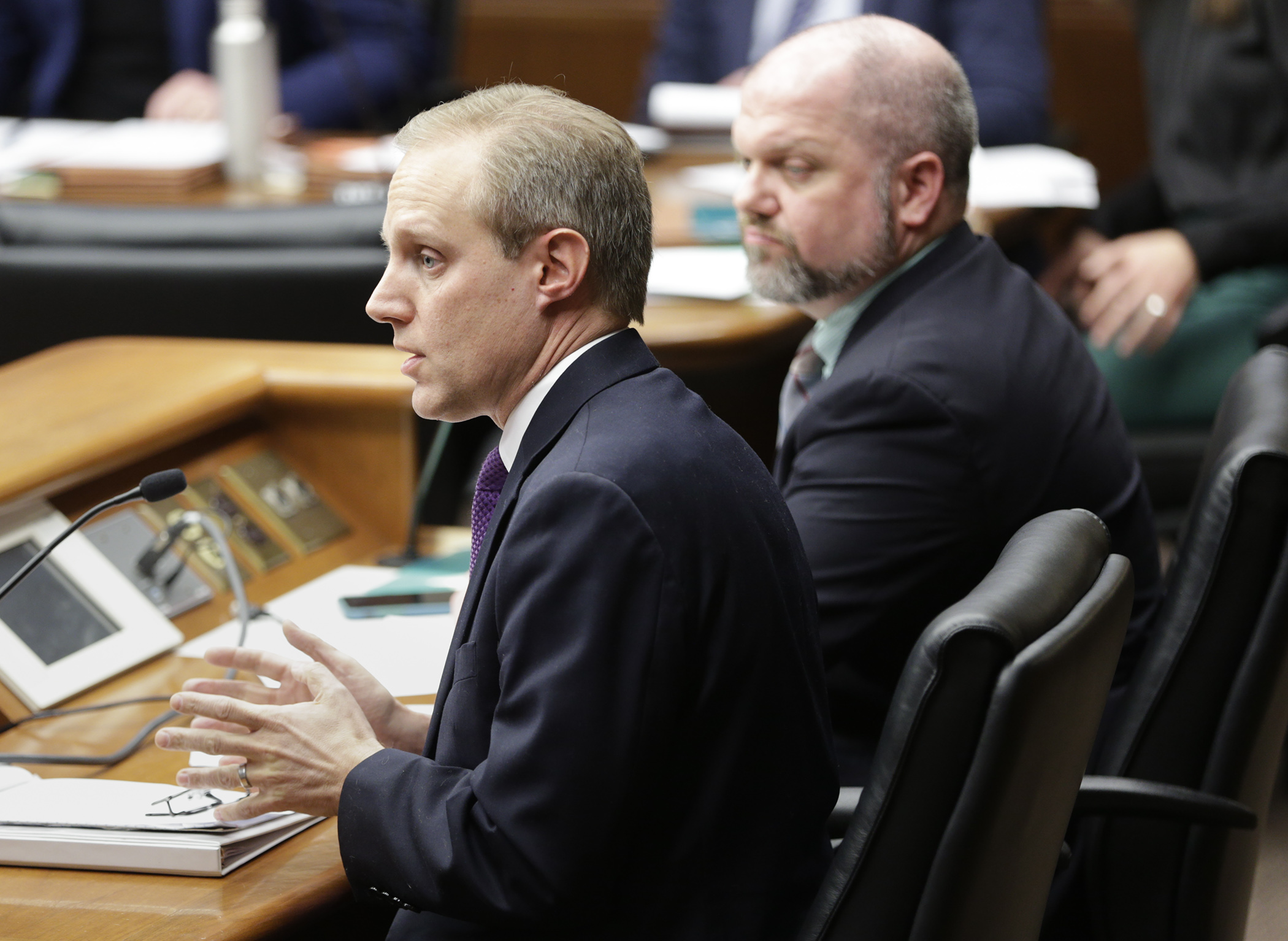State government division divided over election security funds

Voters across the country are scheduled to cast ballots Nov. 3 for federal, state and local offices.
With the potential for technological mischief, election security is at the forefront of many interested parties. However, a political standoff has put Minnesota behind most other states.
Sponsored by Rep. Mike Freiberg (DFL-Golden Valley), HF3006 would appropriate federal Help America Vote Act money directly to the Office of the Secretary of State.
Approved on a split-voice vote Thursday by the House State Government Finance Division, the bill’s next stop is the House Government Operations Committee. A companion, SF3028, is sponsored by Sen. Ann Rest (DFL-New Hope) and awaits action by the Senate State Government Finance and Policy and Elections Committee.
In 46 other states, federal election security money flows directly to state elections officials, but in Minnesota state statute requires funds first be specifically appropriated by the Legislature.
“My experience the last couple years … it’s been more of a roadblock,” Freiberg said. “I feel like election security has become held hostage to the Legislature’s budget concerns.”
The federal government allocated funds in March 2018 to help states administer elections and improve security. Minnesota received nearly $6.6 million.
The dollars, however, were held up by Senate Republicans who appeared to want other election changes in exchange for releasing the money. Funds were finally OK’d via a law passed in May 2019.
“That delay of 15 months put us at risk,” said Secretary of State Steve Simon. “There are things that we can’t do in time for the 2020 election that we could have done had we gotten this money on time.”
According to a fiscal note, another nearly $7.4 million in HAVA funds are now available to Minnesota until Dec. 21, 2024, but legislative approval is needed. The funds must be repaid if a state match of nearly $1.5 million is not provided by Dec. 21, 2021.
Among concerns with the bill voiced by Republicans on the division is transparency and a lack of checks and balances.
“Our job is to oversee other parts of government,” said Rep. Steve Green (R-Fosston). “… Just because there was one incident you don’t like, don’t give away your authority.”
Simon questioned if members believe a state should be permitted to block any incoming federal funds until legislative approval is given just because they don’t like something the president or Congress is doing.
“I ask everyone to think outside their partisan boxes, think of the various combinations,” Simon said. “Do you really want this precedent to continue to be set?”
Related Articles
Search Session Daily
Advanced Search OptionsPriority Dailies
Ways and Means Committee OKs House budget resolution
By Mike Cook Total net General Fund expenditures in the 2026-27 biennium will not exceed a hair less than $66.62 billion.
That is the budget resolution approved Tuesday by the House Ways...
Total net General Fund expenditures in the 2026-27 biennium will not exceed a hair less than $66.62 billion.
That is the budget resolution approved Tuesday by the House Ways...
Minnesota's budget outlook worsens in both near, long term
By Rob Hubbard It looks as if those calling for less state spending could get their wish, judging from Thursday’s release of the February 2025 Budget and Economic Forecast.
A state su...
It looks as if those calling for less state spending could get their wish, judging from Thursday’s release of the February 2025 Budget and Economic Forecast.
A state su...